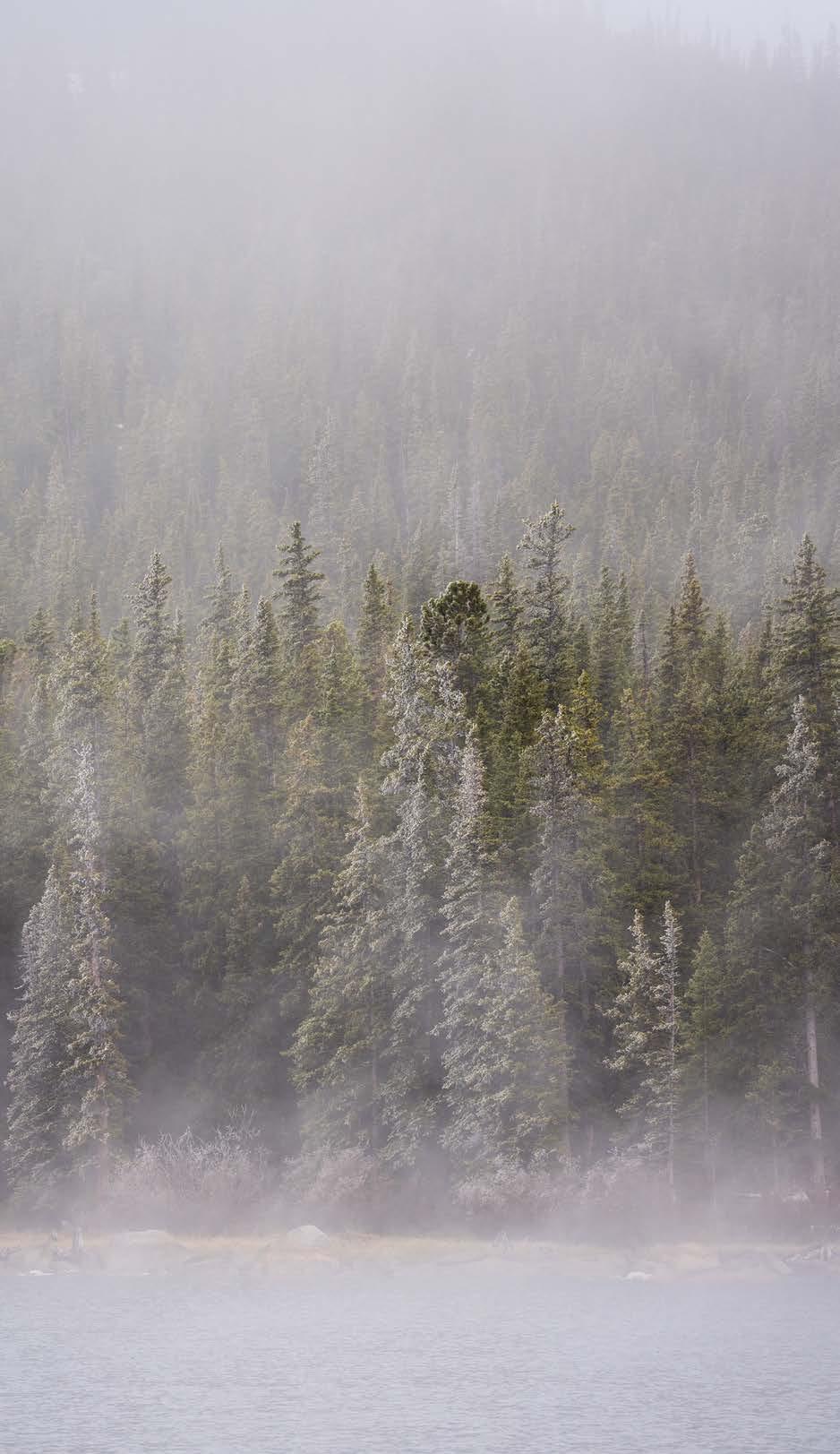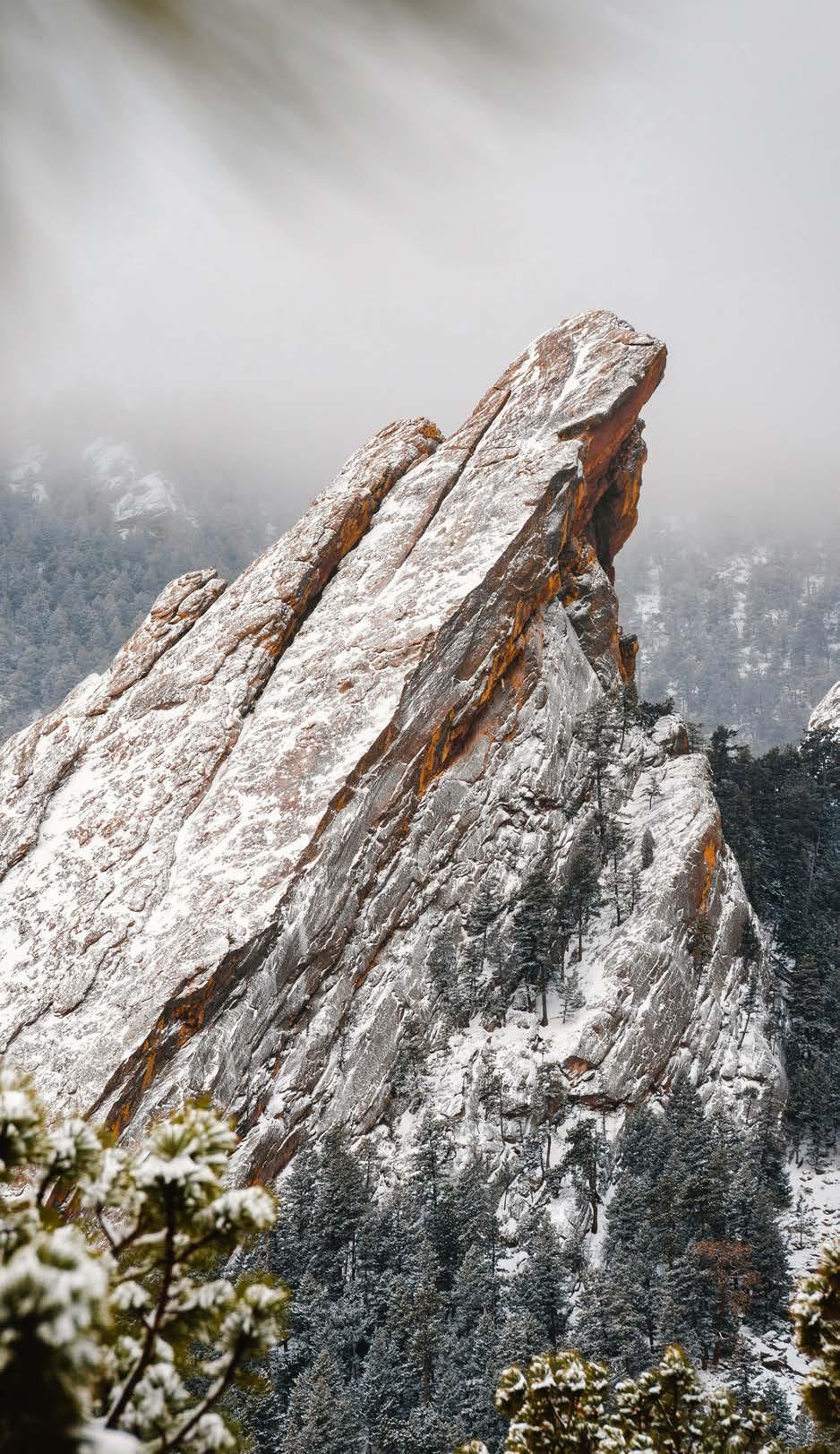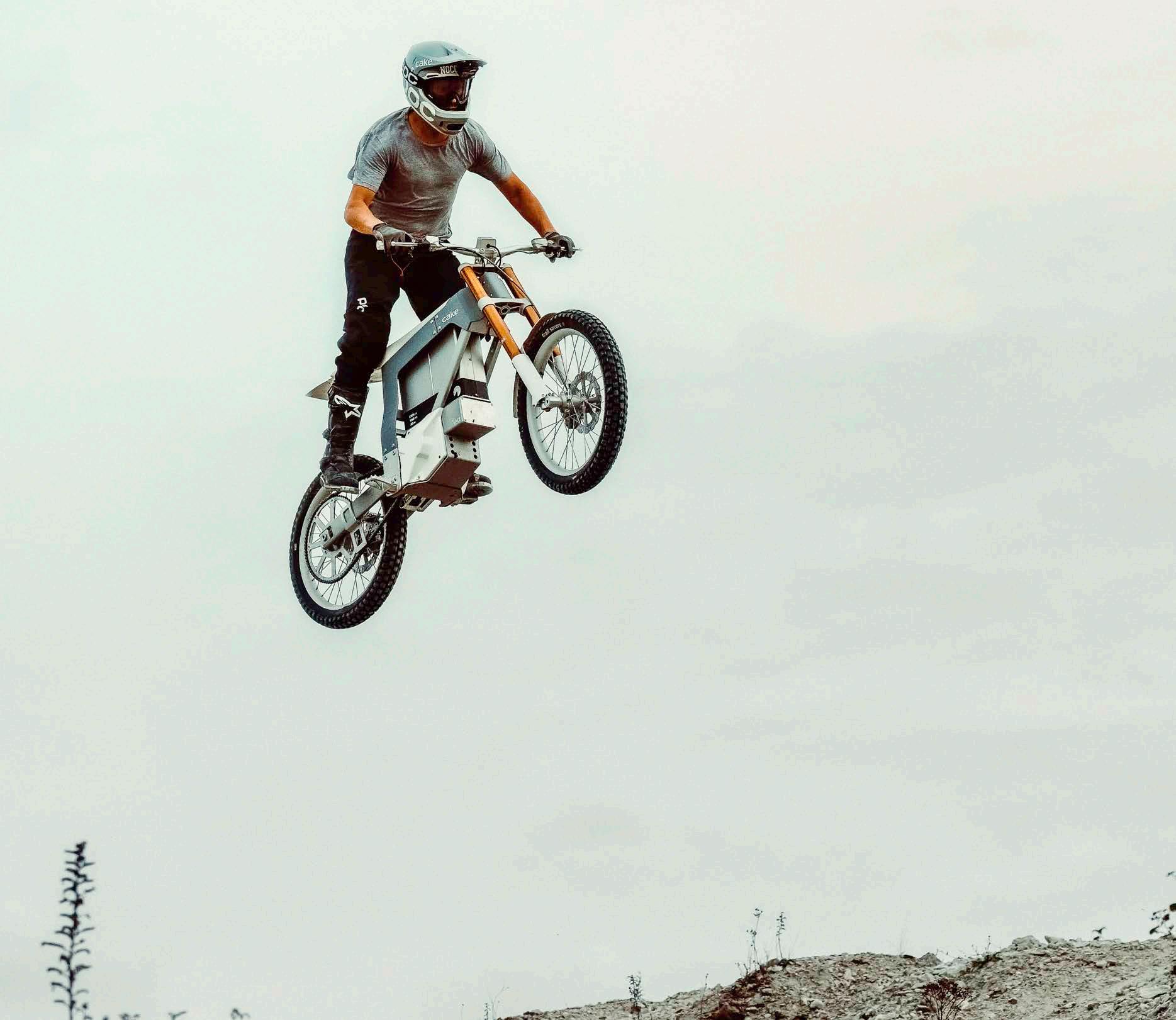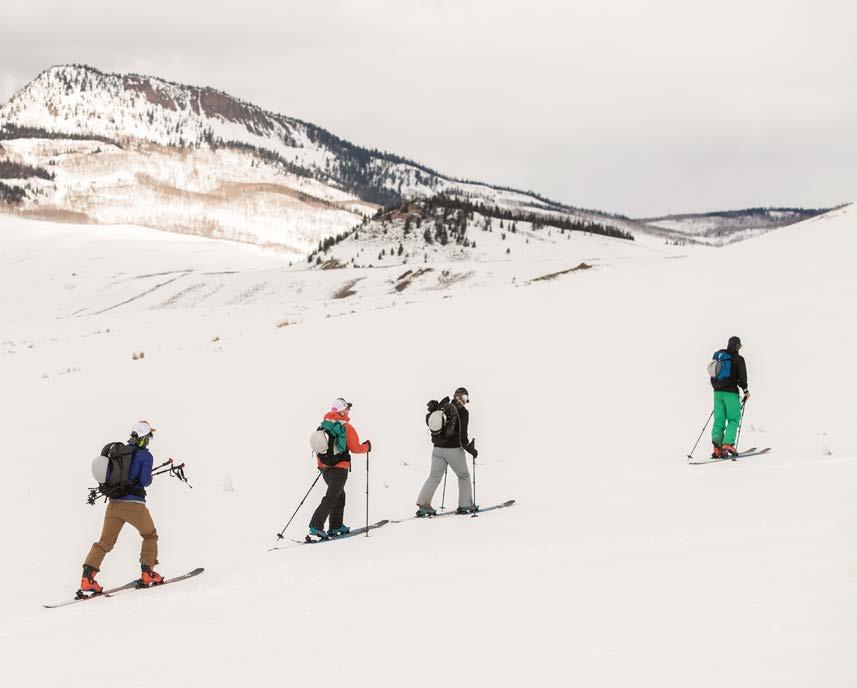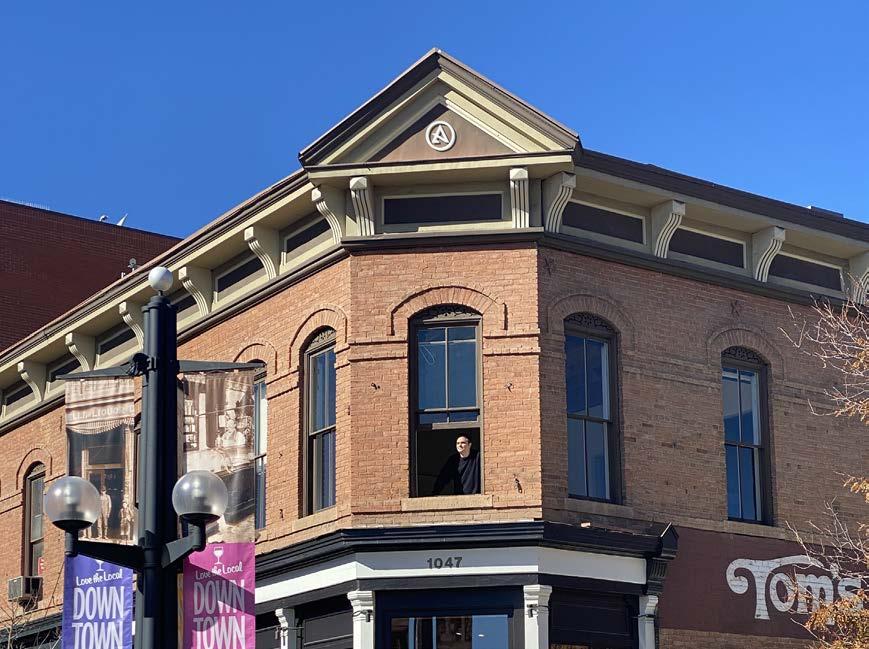/PLACES
A Democratized Backcountry Ski Experience “You shouldn’t need thousands of dollars or a mentor to start your journey”
Bluebird Backcountry is a fascinating model. Do you see potential for it to grow here in North America and abroad? Erik Lambert: “We’ve made it a lot further than we thought we might with the concept. That’s really exciting and it bodes well for the future of skiing in general - not just backcountry. It has created some diversity in how people think about skiing, and I imagine something like Bluebird could exist in many places. These could pop up and blow people’s minds with different experiences, bring human connection, and diversify what’s become a consolidated mega-scene that doesn’t resonate with a lot of people. There’s definitely a cultural shift of skiing. If you look at the resort scene, other than the equipment - having fatter skis, stiffer boots, or whatever it might be - the last real innovations inside of a boundary were terrain parks and the snowboard, and that was 30 years ago.
Colorado’s Bluebird Backcountry is the world’s first modern human-powered backcountry ski area, with 4,200 skiable acres (1,200 avalanche evaluated and 3,000 guided only out-of-bounds). Bluebird boasts zero lifts and will welcome 200 skiers per day. The Culturelines team connected with co-founder Erik Lambert who dove into the vision for Bluebird. “When someone asks me, “When you boil it down, what is Bluebird Backcountry?”, my answer is: It’s one part ski area - with all of the comforts and amenities of that; One part guide service - you can learn at the highest or most basic levels and we’re doing all of that onsite now; And one part true backcountry, where you get to have more of a wilderness experience than you would in bounds. You’ll see wildlife, have fresh tracks all day. You get to have a true backcountry experience without all the BS of having to uphill it at a resort.” 6
Those things totally changed how people move on snow. We believe this is one of those landmark moments where we can offer an entirely different experience and perspective on skiing, and reimagine learning how to backcountry ski.”
Due to gear, knowledge, safety and other factors, backcountry skiing has a hardcore, alpha history. Can that be changed, do you want it to change? EL: “Yeah, it’s really intimidating. It’s really bro-y. And it doesn’t need to be. We think there’s a better way to learn.
In general, outdoor sports are relatively gear and knowledge specific, which makes them exclusive. You need to know someone to start doing certain outdoor activities. But then layer in the required fitness, education, and gear and compound that with the risks of traveling in avalanche terrain, you end up with a high barrier to entry. That barrier is appealing to a lot of people it’s the reward - and that’s great if you have the time, money and mentor to make it possible. We see backcountry skiing as about 30 years behind rock climbing - a dangerous sport built on a mentorship model. Before climbing gyms were prevalent - which make climbing and education more accessible - you needed to know someone to show you what to do. The gyms also create a community hub for climbers to gather. Those are elements that we are striving for with Bluebird - a democratized backcountry ski experience. You shouldn’t need thousands of dollars or a mentor to start your journey. You should be able to try it in a safer, friendlier environment that’s designed to welcome you. Ultimately we want to provide a rich experience that meets people at any ability level, provides knowledge and empowers people to want to learn more. This way people can start the journey without feeling overwhelmed by the barriers to entry.”
“The last real innovations inside a boundary were terrain parks and the snowboard, and that was 30 years ago.” 7

